Operating Board of Directors
The Operating Board of Directors has general oversight, fiduciary, and policy development responsibilities. The board develops and approves strategic plans that define the framework that guides CureAP4 activities, moving the organization closer to achieving its mission. Decision-making is led by the Board members, in consultation with the Scientific Advisors. The Board of Directors meets on a quarterly basis or as needed.

Chris Edwards
Chair, Cure AP-4. Chris is Robbie Edwards' father. He has founded a series of startup companies during his career. He has extensive experience in building/managing teams with diverse skills sets, and with navigating complex governmental regulations and problem solving.
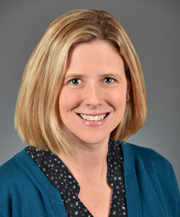
Kira Dies, ScM, CGC
Vice-Chair, Cure AP-4 & Executive Director at Rosamund Stone Zander Translational Neuroscience Center, Boston Children's Hospital. Kira is a licensed genetic counselor at Boston Children's Hospital. She has a deep understanding of the underlying genetics of neurodegenerative diseases like HSP. She manages multi-site clinical trial for neurogenetic conditions including tuberous sclerosis complex, Rett syndrome, and PTEN hamartoma syndrome.

Kevin Duffy
Secretary Cure AP-4 & Head Golf Professional, Riverton Country Club. Kevin is Molly Duffy's father. He has been working in the golf industry for more than 15 years and is currently responsible for leading the golf operation at Riverton CC from both an operational and strategic level. His areas of expertise include marketing, relationship management, customer service, team building and coaching.

Catherine Jordan
Catherine completed her undergraduate degree at Thompson Rivers University in Psychology and Biology in 2017. Following that, she completed her Master's degree at the Harvard Extension School where her thesis focused on understanding the HRQoL in patients with AP-4 HSP. Post graduation, she worked for Boston Children's Hospital as a Clinical Research Specialist, supporting the clinical research on HSP and other neurogenetic disorders. Currently, she is completing her doctorate at Northeastern University and co-leading the Research Readiness Program at Global Genes. She has a passion for patient advocacy, genetics, translational research, and project management.
Scientific Consultants
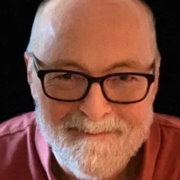
Neil Hackett, PhD
Independent Consultant. Neil Hackett has extensive experience in pre-clinical and translational gene therapy programs. He advises on many areas including study design and regulatory filings. His background includes professorial appointments at Vanderbilt University and Weill-Cornell Medical College resulting in over 100 academic publications.
Scientific Advisory Board
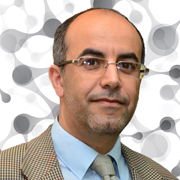
Dr. Mimoun Azzouz
Chair of Translational Neuroscience, ERC Advanced Investigator, Director of Research and Innovation, University of Sheffield. Dr. Azzouz has a long-standing interest in developing gene therapy approaches for neurodegenerative diseases. His team utilizes viral-based gene transfer systems both for research and gene therapy applications.

Dr. Craig Blackstone
Senior Investigator, Cell Biology Section, National Institute of Neurological Disorders and Stroke, NIH. Dr. Blackstone's laboratory investigates the cellular and molecular mechanisms underlying hereditary movement disorders. Craig is one of the most prominent HSP researchers in the world.
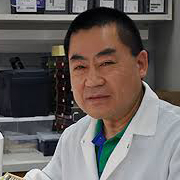
Xin Chen, MD, PhD
Assistant Professor, Department of Pediatrics, UT Southwestern Medical Center. Dr. Chen successfully generated favorable efficacy and safety data using AAV9 based gene therapies to treat AGU, CLN7, and SPG50 knockout mice in Dr. Steven Gray’s laboratory. Both CLN7 and SPG50 gene therapies are now in clinical trials. He is now leading the work as a PI or Co-PI on developing gene therapies for many other rare neuromuscular disorders and trying to facilitate the translation of these therapies for use in human patients.
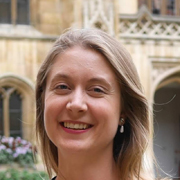
Alexandra Davies, PhD
Marie Skłodowska-Curie Fellow at the Max Planck Institute of Biochemistry, Germany. Dr. Davies' research focuses on understanding cellular mechanisms of rare neurological disorders and she has worked on AP-4 deficiency syndrome since 2014. Her PhD work identified the core autophagy protein ATG9A as a cargo of the AP-4 vesicle pathway and her postdoctoral work has uncovered a role for AP-4 vesicle trafficking in the spatial control of endocannabinoid signalling. Dr. Davies works in the Borner lab and collaborates closely with Dr. Ebrahimi-Fakhari to ensure that cellular phenotypes are rapidly translated into discovery tools to help identify novel treatments for AP-4 deficiency syndrome.

Darius Ebrahimi-Fakhari, MD, PhD
Resident physician in the combined Pediatrics & Child Neurology Program at Boston Children's Hospital / Harvard Medical School. Darius works at the Department of Neurology, Boston Children's Hospital. His group does research in Neurology, Neuroscience, and Cell Biology. Their current projects include "Development Of An In Vitro Model Of SPG47-Associated Hereditary Spastic Paraplegia Using Patient iPSC-Derived Neurons To Support Unbiased Screening Of Novel Therapeutic Approaches To Treatment", and "An International Registry and Natural History Study For AP-4-associated Hereditary Spastic Paraplegia".

Dr. John Fink
Professor, Department of Neurology, Director, Neurogenetic Disorders Program, University of Michigan. In addition to being one of the world's foremost investigators of upper motor neuron disorders, Dr. Fink also maintains the largest clinic in the U.S. for persons with HSP or PLS.
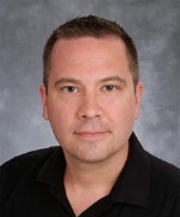
Michael C. Kruer, MD
Associate Professor of Child Health, Genetics, Neurology and Cellular & Molecular Medicine at University of Arizona College of Medicine. Michael Kruer, MD, is a pediatric movement disorders neurologist, developmental pediatrician and molecular geneticist. Dr. Kruer's lab is dedicated to understanding how genetic mutations lead to both common (cerebral palsy and Tourette Syndrome) and rare movement disorders in children and how genetics can serve as a springboard to improvements in both diagnosis and intervention.
